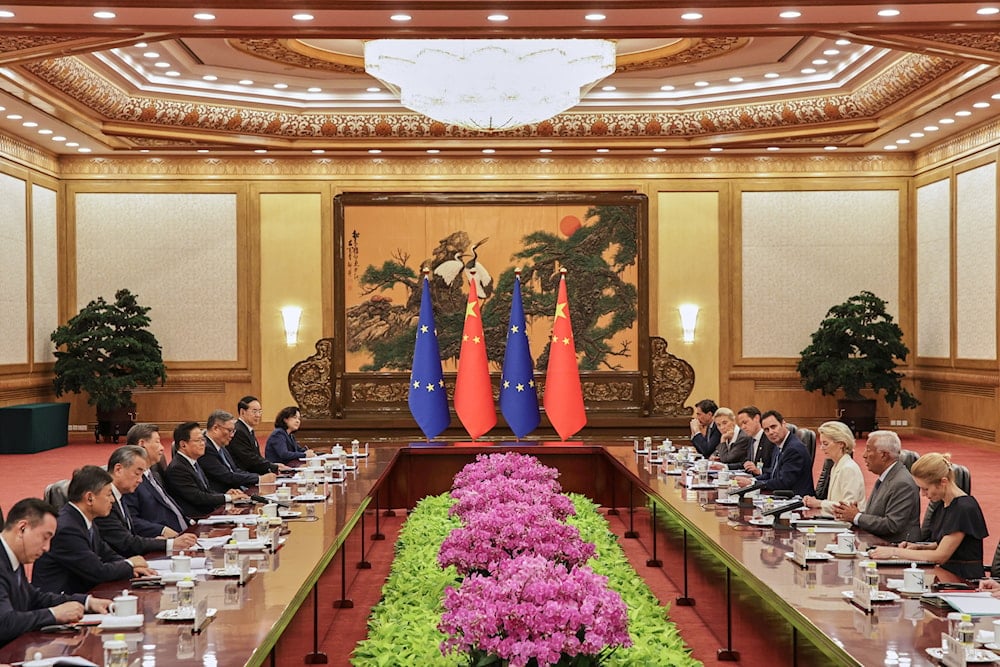Von der Leyen calls for trade rebalance with China amid tensions
During a tense EU-China summit, Ursula von der Leyen urges trade rebalancing as Xi Jinping calls for "correct strategic choices" to strengthen cooperation.
-

Chinese President Xi Jinping, fourth left, listens to European Council President António Costa, second right, in the presence of European Commission President Ursula von der Leyen, third right, and the European Union’s foreign policy chief, Kaja Kallas, during the opening remarks of the European Union-China Summit in Beijing, China, on July 24, 2025. (Andres Martinez Casares /Pool Photo via AP)
European Commission President Ursula von der Leyen called for a fundamental rebalancing of trade relations between the European Union and China during a tense one-day summit with Chinese President Xi Jinping on Thursday, marking 50 years of diplomatic ties.
The summit, held in Beijing, came amid rising political and economic friction. Von der Leyen described the current state of ties as standing at an "inflection point," according to a pool report. Expectations were subdued after weeks of escalating rhetoric and disputes over the summit’s format, which was abruptly shortened at Beijing’s request.
In her remarks, von der Leyen called for an "essential" rebalancing of trade ties and emphasized the need to move toward a more equitable partnership.
In contrast to earlier statements accusing China of enabling Russia's war economy and flooding global markets, she adopted a more conciliatory tone ahead of the meeting, posting that the summit was a chance to "advance and rebalance our relationship."
Xi Jinping urges strategic cooperation
President Xi Jinping, in comments reported by state broadcaster CCTV, urged the European Union to "make correct strategic choices," adding that "the more severe and complex the international situation, the more China and the EU must strengthen communication, enhance mutual trust and deepen cooperation."
The backdrop to the summit was dominated by intensifying trade disputes and strategic mistrust. In July, von der Leyen accused China of economic overcapacity and undermining global markets, while also raising concerns about Beijing's indirect support for Russia’s military industry.
These accusations have contributed to growing calls within the EU for stronger economic defenses, especially in sectors like electric vehicles and green technology, where Chinese state subsidies are seen as distorting competition.
In response, Chinese state media downplayed rivalry with the 27-member bloc. A commentary by Xinhua described China as a "critical partner" rather than a "systemic rival," citing shared interests in trade, climate cooperation, and global governance.
China’s export controls disrupt EU supply chains
One focal point of friction remains China’s control over rare earth materials essential to European manufacturing. In April, Beijing imposed export controls that challenged supply chains across Europe, especially in the automotive sector.
These restrictions led to temporary halts in production lines in several European countries. Although the impact was significant, China’s exports of rare earth magnets to the EU rebounded sharply in June, rising 245% from May to 1,364 metric tons, though still 35% less than the same month last year.
Despite the rebound, the episode has fueled concerns in Brussels about long-term supply chain resilience and strategic vulnerability.

 3 Min Read
3 Min Read










